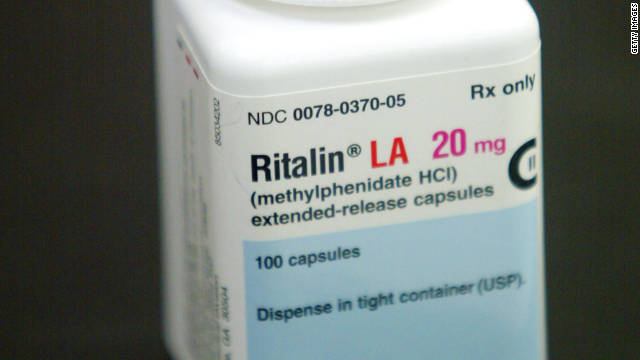Story highlights
- A study in Norway found that 7.8% of people could be addicted to work
- Almost a third of workaholics meet the criteria for ADHD, researcher says
- Anxiety, OCD and depression are also linked to workaholism
Vital Signs is a monthly program bringing viewers health stories from around the world.
(CNN)The difference between enthusiasm for work and addiction to it can sometimes be difficult to discern, especially when it's so easy to take work home on a smartphone or laptop.
To find out how many people are true workaholics, researchers from the University of Bergen surveyed thousands of people in Norway using the Bergen Work Addiction Scale, which uses diagnostic criteria for several kinds of addiction.
What is workaholism?
The study found that 7.8% of people could be classified as workaholics.
This meant these people were spending more time at work than intended, working to reduce feelings of guilt and anxiety, and deprioritizing hobbies and exercise because of work.
"In traditional addictions, it is typical that there are common underlying and maybe genetic vulnerabilities ... but it has never been looked at in the field of workaholism," said lead researcher and clinical psychologist Cecilie Schou Andreassen.
The link to ADHD
The researchers analyzed responses from 16,426 working adults between the ages of 16 and 75 years old who represented a range of socioeconomic backgrounds.
They also found that 32.7% of workaholics met criteria for attention deficit hyperactivity disorder (compared with 12.7% of non-workaholics), suggesting a significant link between work addiction and ADHD.
Andreassen explained how ADHD typically involves patterns of inattentiveness, impulsiveness and/or hyperactivity.
"Maybe because of the impulsive nature of these people, they may be taking on a lot of work without thinking ahead and maybe biting off more work than they can realistically chew. That's one hypothesis."
As of 2011, about 11% of 4- to 17-year-olds have been diagnosed with the disorder in the United States, with the numbers rising year on year. But while ADHD has been clearly linked with children and adolescents, the condition in adults has often been overlooked.
"For a long time, there hasn't been much knowledge about adult ADHD because it was thought that it was just something children have, and they grow it off," Andreassen said, suggesting that some adults who find work overly challenging may have ADHD.
"Some may work to compensate for their shortcomings by working at the weekends and working after co-workers have gone home, or if they like to work when it's more quiet at the office."
Mental health and work addiction
The study also found a link between workaholism and obsessive-compulsive disorder, with about a quarter of those classed as workaholics meeting criteria for OCD.
Anxiety and depression were also linked, with about a third of workaholics likely to experience anxiety and 8.9% of workaholics meeting depression criteria.
While the findings highlight how addiction is not just limited to behaviors like drinking or gambling, it's important to note that the study doesn't link causes and effects. It's just a sample of some of Norway's population.
"It's cross-sectional. That means that we don't measure long-term effects. We just cut into the cake and look what's in there, so we can't say anything about the causal effects," Andreassen said.
"This is also an illustration that people with ADHD can be very creative, very talented, very intelligent and actually take work to the extreme. And if you look at people in history with these kind of traits, you will find them as business leaders, as artists, as scientists and so on."
The research not only highlights some of the lesser-known realities of addiction, it gives people an opportunity to find out whether their relationship to work is more than it seems and perhaps seek treatment.





























